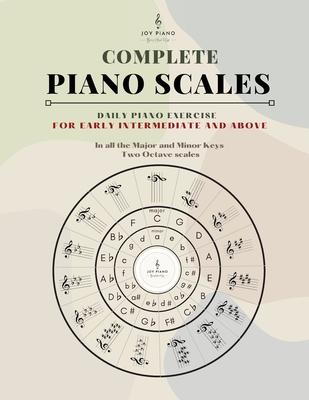Why do you need to practice "Scales"?
Piano scales are an important part of developing your playing skills, they greatly help you improve your awareness of tones and your knowledge of all the keys. Plus, they help you develop fast, nimble fingers and teach you how to move your thumb efficiently, which is the foundation of all piano playing.
Practicing scales will improve your technique and fingering as well as give your hands muscle memory. The more you practice, the less you will need to think about your hands.
Major and Minor scales, including enharmonic scales
- C major and A minor
- G major and E minor
- F major and D minor
- D major and B minor
- Bb major and G minor
- A major and F# minor
- Eb major and C minor
- E major and C# minor
- Ab major and F minor
- B major and G# minor
- Db major and Bb minor
- F# major and D# minor
- Gb major and Eb minor
- C# major and A# minor
- Cb major and Ab minor
How Long Does It Take To Learn Scales On Piano?
Age Practice Time
- 4-5 2-3 minutes on short scales
- 7-10 5-10 minutes on scales
- Over 10 or intermediate level 10-20 minutes spent on scales
- High School and above 15-20 minutes spent on scales
Not only will this book help you develop coordination between your hands, but it will also develop finger strength, a strong sense of rhythm, clarity, and speed, which are all important for playing the piano.
